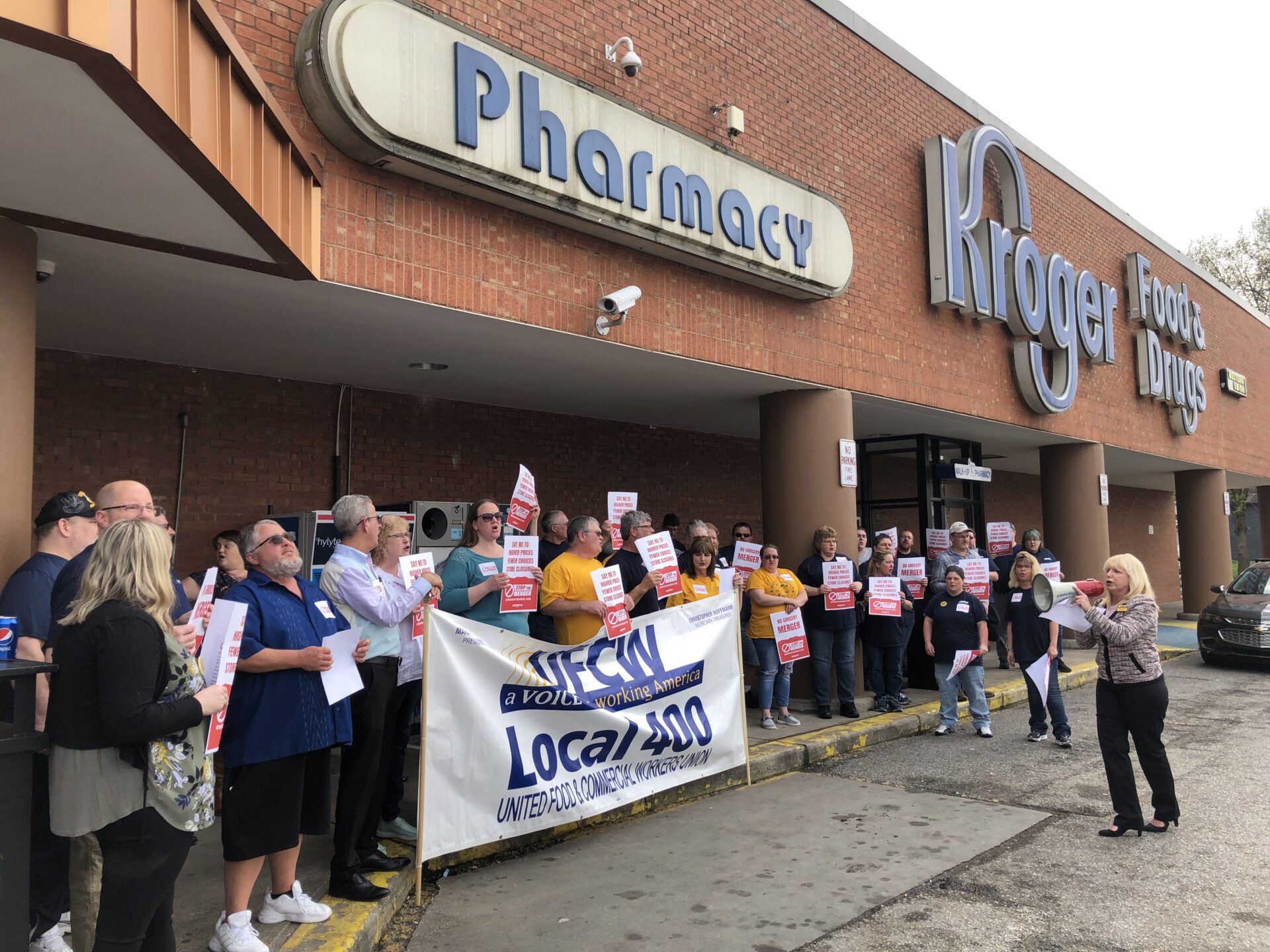Kroger union workers protested Wednesday in opposition to a proposed merger that would make the grocery chain one of the largest in the country.
Members of the United Food & Commercial Workers Local 400 Union gathered outside of a West Charleston Kroger to protest the grocery chain’s merger with Albertsons Companies. A similar action took place in Clarksburg on Tuesday.
Steve Arthur made the trip from Beaver, where he is the head grocery clerk. Arthur said the merger would be bad for consumers and workers, stifling competition in the grocery industry.
“If you look around the Washington, D.C. area, or out into California, they are in close competition to each other,” Arthur said. “Therefore, if Kroger would close down one location, its going to put people out of work. Our wages go down, and we’re very concerned about that. It’s for the livelihood of the working American.”
Arthur, who said he has been working at Kroger for close to 50 years, said what’s most upsetting is the merger’s $24 billion price tag.
“That is a cash payment. That’s cash money, but yet they’re having a hard time paying us for vacations,” he said. “They’re having a hard time paying us for our hourly rate increases. That’s not right. And here they’re wanting to take over another company.”
The merger is currently being reviewed by the Federal Trade Commission.
Judy Turner, who works at the Kroger in Madison, said the union is asking shoppers to add their voices to the opposition.
“If those folks will just voice their opinions and get on the website and say, ‘Hey, let’s stop this merger because we don’t want higher prices, we don’t want job loss.’ And that’s the message we want to get across today.” she said.
